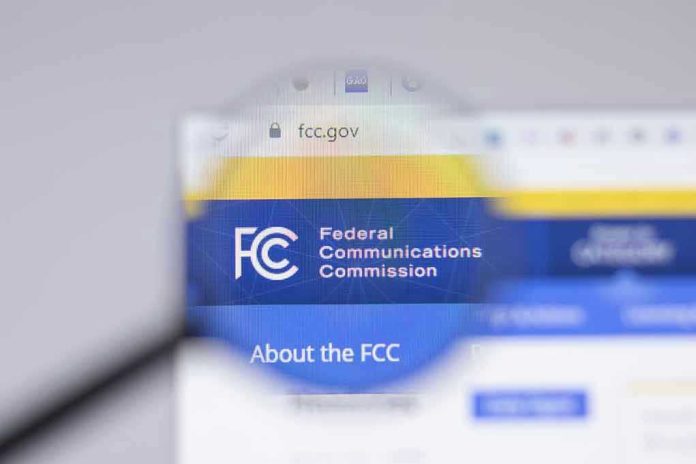
President Donald Trump has intensified his campaign against television networks by suggesting the revocation of broadcast licenses for those critical of him, stirring a national debate on press freedom.
Story Overview
- Trump proposes revoking licenses of critical TV networks
- FCC Chair Brendan Carr warns networks to self-censor
- Critics argue actions threaten press freedom
- Potential erosion of democratic institutions
Trump’s Latest Media Offensive
Donald Trump escalated his long-standing feud with major television networks. By proposing that the FCC should revoke the broadcast licenses of networks he deems hostile, Trump has reignited discussions about the limits of political influence over media. His latest salvo came on the heels of Disney’s decision to pull Jimmy Kimmel’s show from ABC, a move both Trump and FCC Chair Brendan Carr attributed to poor ratings. However, critics argue this is merely a pretext for political pressure.
Trump’s rhetoric targets not just networks but specific shows and hosts, amplifying the stakes for media outlets. FCC Chair Brendan Carr has issued stark warnings, indicating that networks like NBC and ABC could face scrutiny for alleged public interest violations. This raises questions about the role of the FCC as a regulatory body; while the agency traditionally operates independently, its chair’s alignment with Trump’s agenda suggests a shift towards using regulatory authority as a tool for political leverage.
Historical Context of Media and Political Power
The tension between U.S. presidents and the media is not unprecedented. During the Nixon era, similar attempts to wield the FCC against the Washington Post were ultimately thwarted by legal protections for press freedom. These historical parallels underscore the potential for overreach when political figures attempt to influence media narratives through regulatory means. Trump’s threats, however, represent a modern escalation, leveraging the polarized media landscape where accusations of bias run rampant on both sides of the political spectrum.
In the backdrop of this conflict is the First Amendment, a cornerstone of American democracy that enshrines press freedom. While the Constitution protects the media from direct censorship, broadcast licenses remain subject to FCC regulation, creating a complex legal environment. This complexity allows administrations to test the boundaries of influence, with Trump’s latest actions suggesting a willingness to challenge established norms.
The Broader Implications
Trump’s actions have far-reaching implications for the media industry and democratic institutions alike. In the short term, networks may increasingly self-censor to avoid the specter of regulatory retaliation, leading to a chilling effect on journalistic integrity. This could erode public trust in media as an independent watchdog, further polarizing the information landscape.
In the long term, the erosion of the FCC’s independence could damage its credibility as a regulatory body. The politicization of media and regulatory agencies threatens to undermine the First Amendment’s protections, with potential repercussions for democratic institutions at large. As networks navigate these turbulent waters, legal and academic experts warn of the enduring impact on press freedom and the health of democracy.







